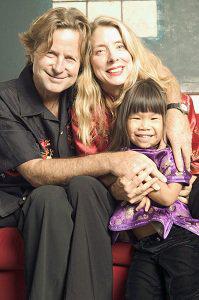Often times, people think of adoption as good old fashioned closed adoption. The biological parents choose not to care for the child and after birth and they leave the hospital without their baby. Then, another couple who has already been selected by an adoption agency receives the child and raises him or her as her own. In this process, arises a conversation in which the adoptive parents have to tell the child that he or she has other parents that gave the baby up.
There is an alternate to this called open adoption. In an open adoption, there can be many different degrees of openness, but the biological parents will be involved in the child's life in some way.
In open adoptions, usually the person who arranges the adoption will write out exactly what is expected of each set of parents, according to Family Education. This includes pictures that may be sent back and forth, letters of progress of the child's life, and even, sometimes, visitation. Usually these expectations are not legally binding, but one side can take the other to court.
There are three types of adoption:
Confidential (closed): The adoptive parents and the biological parents do not know each other and never meet; all of the paperwork travels through an attorney or adoption agency. Parents can get information about each other like medical history, but nothing identifying will be passed on. Sometimes, this is the only option because organizations do not allow personal information to be shared. This is the case for many international adoptions and adoptions through foster homes.
Semi-Open: Adoptive and biological parents meet a few times and agree to exchange minimal information such as pictures and letters infrequently. Semi-open is very flexible and can be arranged many different ways according to the parents' preferences.
Open: The adoptive parents and biological parents know each other fairly well in open adoptions. The biological parents may have even picked out the adoptive parents for their child. Parents may continue to meet and exchange pictures and letters after the child is adopted, and may bring the child to meetings as well.
Sometimes biological and adoptive parents cannot agree on how to go about the adoption process and the child after the process is complete. If you have questions or concerns about adoption, contact an Illinois adoption attorney. Lawyers at the Roscich & Martel Law Firm can help you through the adoption process today.


